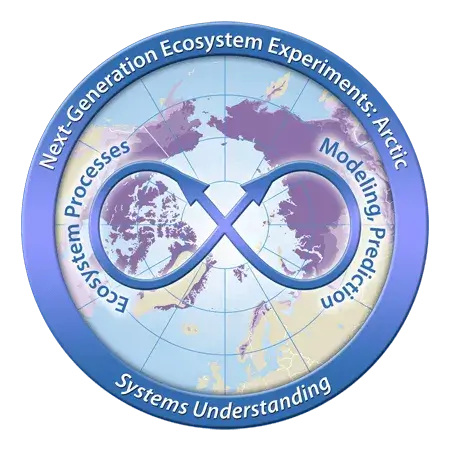Ghimire, Bardan, et al. “A Global Trait-Based Approach to Estimate Leaf Nitrogen Functional Allocation from Observations”. Ecological Applications, vol. 27, no. 5, 2017, pp. 1421-34, https://doi.org/10.1002/eap.1542.
Publications
Displaying 1 - 20 of 73
By year of publication, then alphabetical by title
- Zhu, Qing, et al. “A New Theory of Plant-Microbe Nutrient Competition Resolves Inconsistencies Between Observations and Model Predictions”. Ecological Applications, vol. 27, no. 3, 2017, pp. 875-86, https://doi.org/10.1002/eap.1490.
- Rogers, Alistair, et al. “A Roadmap for Improving the Representation of Photosynthesis in Earth System Models”. New Phytologist, vol. 213, no. 1, 2017, pp. 22-42, https://doi.org/10.1111/nph.14283.
- Lewin, Keith F., et al. “A Zero-Power Warming Chamber for Investigating Plant Responses to Rising Temperature”. Biogeosciences, vol. 14, no. 18, 2017, pp. 4071-83, https://doi.org/10.5194/bg-14-4071-2017.
- Dou, Shan, et al. “An Effective-Medium Model for P-Wave Velocities of Saturated, Unconsolidated Saline Permafrost”. GEOPHYSICS, vol. 82, no. 3, 2017, https://doi.org/10.1190/geo2016-0474.1.
- Nicolsky, Dmitry J., et al. “Applicability of the Ecosystem Type Approach to Model Permafrost Dynamics across the Alaska North Slope”. Journal of Geophysical Research: Earth Surface, vol. 122, no. 1, 2017, pp. 50-75, https://doi.org/10.1002/2016JF003852.
- Dafflon, Baptiste, et al. “Coincident Aboveground and Belowground Autonomous Monitoring to Quantify Covariability in Permafrost, Soil, and Vegetation Properties in Arctic Tundra”. Journal of Geophysical Research: Biogeosciences, vol. 122, no. 6, 2017, pp. 1321-42, https://doi.org/10.1002/2016JG003724.
- Wang, Kang, et al. “Continuously Amplified Warming in the Alaskan Arctic: Implications for Estimating Global Warming Hiatus”. Geophysical Research Letters, vol. 44, no. 17, 2017, pp. 9029-38, https://doi.org/10.1002/2017GL074232.
- Langford, Zachary L., et al. “Convolutional Neural Network Approach for Mapping Arctic Vegetation Using Multi-Sensor Remote Sensing Fusion”. 2017 IEEE International Conference on Data Mining Workshops (ICDMW)2017 IEEE International Conference on Data Mining Workshops (ICDMW), IEEE, 2017, https://doi.org/10.1109/ICDMW.2017.48.
- Tran, Anh Phuong, et al. “Coupled Land Surface-Subsurface Hydrogeophysical Inverse Modeling to Estimate Soil Organic Content and Explore Associated Hydrological and Thermal Dynamics in an Arctic Tundra”. The Cryosphere, vol. 11, 2017, pp. 2089-0, https://doi.org/10.5194/tc-11-2089-2017.
- Strauss, Jens, et al. “Deep Yedoma Permafrost: A Synthesis of Depositional Characteristics and Carbon Vulnerability”. Earth-Science Reviews, vol. 172, 2017, pp. 75-86, https://doi.org/10.1016/j.earscirev.2017.07.007.
- Wu, Yuxin, et al. “Electrical and Seismic Response of Saline Permafrost Soil During Freeze - Thaw Transition”. Journal of Applied Geophysics, vol. 146, 2017, pp. 16-26, https://doi.org/10.1016/j.jappgeo.2017.08.008.
- Raz-Yaseef, Naama, et al. “Evapotranspiration across Plant Types and Geomorphological Units in Polygonal Arctic Tundra”. Journal of Hydrology, vol. 553, 2017, pp. 816-25, https://doi.org/10.1016/j.jhydrol.2017.08.036.
- Xu, Xiaofeng, et al. “Global Pattern and Controls of Soil Microbial Metabolic Quotient”. Ecological Monographs, vol. 87, no. 3, 2017, pp. 429-41, https://doi.org/10.1002/ecm.1258.
- Herndon, Elizabeth M., et al. “Influence of Iron Redox Cycling on Organo-Mineral Associations in Arctic Tundra Soil”. Geochimica Et Cosmochimica Acta, vol. 207, 2017, pp. 210-31, https://doi.org/10.1016/j.gca.2017.02.034.
- Raz-Yaseef, Naama, et al. “Large Carbon Dioxide and Methane Emissions from Polygonal Tundra During Spring Thaw in Northern Alaska”. Geophysical Research Letters, vol. 44, no. 1, 2017, pp. 504-13, https://doi.org/10.1002/2016GL071220.
- Shelef, Eitan, et al. “Large Uncertainty in Permafrost Carbon Stocks Due to Hillslope Soil Deposits”. Geophysical Research Letters, vol. 44, no. 12, 2017, pp. 6134-4, https://doi.org/10.1002/grl.v44.1210.1002/2017GL073823.
- Wainwright, Haruko M., et al. “Mapping Snow Depth Within a Tundra Ecosystem Using Multiscale Observations and Bayesian Methods”. The Cryosphere, vol. 11, no. 2, 2017, pp. 857-75, https://doi.org/10.5194/tc-11-857-2017.
- Grant, Robert F., et al. “Mathematical Modeling of Arctic Polygonal Tundra With Ecosys: 1. Microtopography Determines How Active Layer Depths Respond to Changes in Temperature and Precipitation”. Journal of Geophysical Research: Biogeosciences, vol. 122, no. 12, 2017, pp. 3161-73, https://doi.org/10.1002/2017JG004035.
- Grant, Robert F., et al. “Mathematical Modeling of Arctic Polygonal Tundra With Ecosys: 2. Microtopography Determines How Carbon Dioxide and Methane Exchange Responds to Changes in Temperature and Precipitation”. Journal of Geophysical Research: Biogeosciences, vol. 122, no. 12, 2017, pp. 3174-87, https://doi.org/10.1002/2017JG004037.

